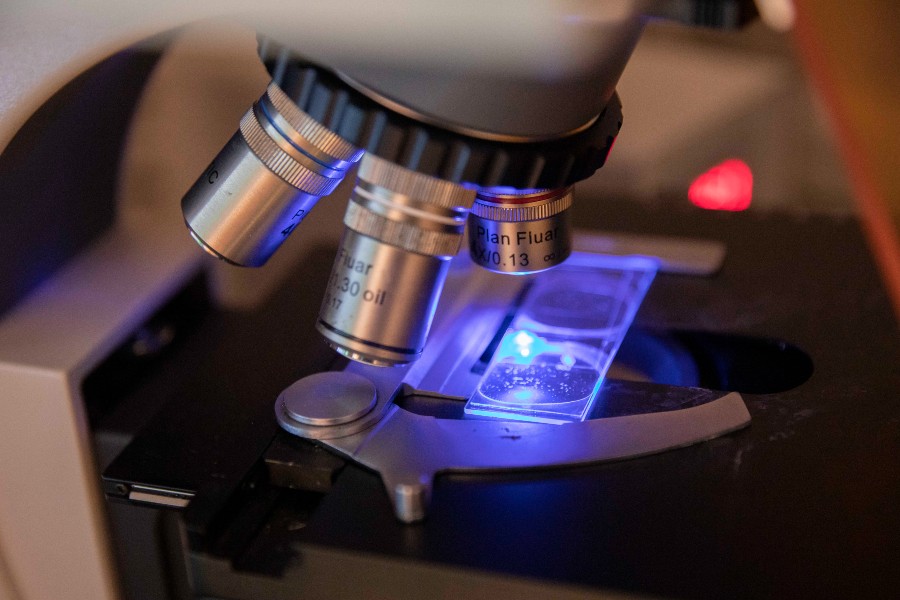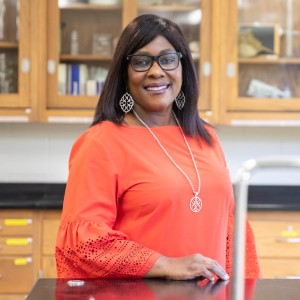Summer fellowship program provides research experiences for undergraduates
Langford-Yates Fellowship for the Advancement of Science boosts skills, readiness for graduate school.
Keely Hagan | 615-966-6491 |

Lipscomb University is dedicated to providing students with exceptional educational opportunities outside of the classroom. The Langford-Yates Fellowship for the Advancement of Science is a summer research fellowship program established in 2007 by the College of Liberal Arts & Sciences that provides students with mentorship opportunities, hands-on experiences and funding to pursue their research endeavors.
The 10-week fellowship program is open for biology, chemistry and biochemistry and physics undergraduates who want to participate in faculty-directed research projects over the summer. Its competitive selection process requires students to submit a well written research proposal. The proposals are evaluated and ranked by a group of faculty members who serve in the CLAS Langford-Yates Fellowship Committee.

Florah Mhlanga
“The program provides students the ability to stay on campus to work in the labs, delve deeply into their chosen field and develop critical research skills,” says Florah Mhlanga, the associate Provost of Undergraduate Academic Affairs. “Working closely with faculty mentors provides students with invaluable support and encouragement. Each student receives personalized attention and guidance in rigorous scientific research.”
“Overall, participation in undergraduate research opportunities provides valuable learning experiences for our students. These experiences not only teach students how to understand the research process, but they also gain expertise in their field of study and develop critical thinking and problem-solving skills. It also enhances their CVs and can substantially increase their chances of getting jobs in the future or getting admitted into graduate or professional schools,” says Mhlanga.

Kyle Brawner
Langford-Yates fellows share the results of their work with the wider academic community by presenting locally at Lipscomb University’s annual Student Scholars Symposium or at national conferences. Some of the Langford-Yates fellows have gained co-authorship in research articles published by their faculty mentors in refereed journals. It is a significant achievement for undergraduate students to have their work published in a scientific journal. It increases their self-confidence, motivation and enthusiasm for research and encourages them to pursue further research before and after they graduate college. It also enhances our institution’s reputation for research and can potentially increase funding opportunities and collaboration with other institutions.
Cultivating a culture of inquiry begins with dedicated faculty members who serve as mentors and guides for undergraduate students. Accepting Langford-Yates Fellows in their research projects this summer are:

Steve Opoku-Duah, Paul Langford
Kyle Brawner, assistant professor of biology. Brawner’s research interest is in necrotizing enterocolitis (NEC), an acute gastrointestinal inflammatory disease of premature infants. The current focus of his laboratory is to identify NEC biomarkers, which are molecular signatures that could help predict which infants will develop NEC and how severe the NEC will be. His lab is also investigating possible molecular mechanisms of how candidate NEC biomarkers might be contributing to disease.
Steve Opoku-Duah, professor of chemistry. Opoku-Duah is well-published on environmental chemistry topics and development of new water filtration technologies. His research focuses on environmental hydrology.
Brian Cavitt, professor of chemistry. Cavitt pursues research focused on surface and coatings chemistry including clay-polymer composite materials, surface free energy analyses, and predictive modeling of coatings formulations.

Brian Cavitt
Langford-Yates Fellows 2023:
Paul Agaiby, honors biology major: “Investigating the Potential Effect of the Opportunistic Pathogen Cronobacter sakazakii on Aryl Hydrocarbon Receptor: Implications for Necrotizing Enterocolitis.” Faculty mentor: Kyle Brawner
Tony Khalil, honors biology major: “Heavy Metal Detection in Middle Tennessee Water Bodies Using Inductively Coupled Plasma–Optical Emission Spectroscopy (ICP-OES).” Faculty mentor: Stephen Opoku-Duah
Kenneth Klutse, honors biochemistry major, professional chemistry: “Removal of Cyanotoxins from Drinking Water Sources Using Copper Sulfate and Sodium Peroxyhydrate (PAK27) Compounds.” Faculty mentor: Stephen Opoku-Duah
Antouious Mikaael, applied biochemistry major: “Isolation and Characterization of 6-His Tagged FimH, and E. coli Adhesin Protein.” Faculty mentor: Brian Cavitt

2023 Langford-Yates Fellows (L-to-R): Kenneth Klutse, Tony Khalil, Antouious Mikaael, Paul Agaiby
The Langford-Yates Fellowship is funded by the Langford-Yates Endowment for the Advancement of Science, which was established by Judith B. Duncan and the late Thomas R. Duncan. The endowment honors Paul Langford, a former chemistry professor, and H. Oliver Yates, a former biology professor. Learn more about the Langford-Yates Fellowship.
The largest of Lipscomb’s 10 colleges, the College of Liberal Arts & Sciences offers a variety of academic programs in the humanities, social sciences, physical sciences and mathematics that provides every student with the fundamental core to the university’s Christian liberal arts curriculum. Rigorous academics combined with hands-on learning and practical experiences enhance students’ critical-thinking skills and allows them to explore their passions further. Learn more at www.lipscomb.edu/arts-sciences.